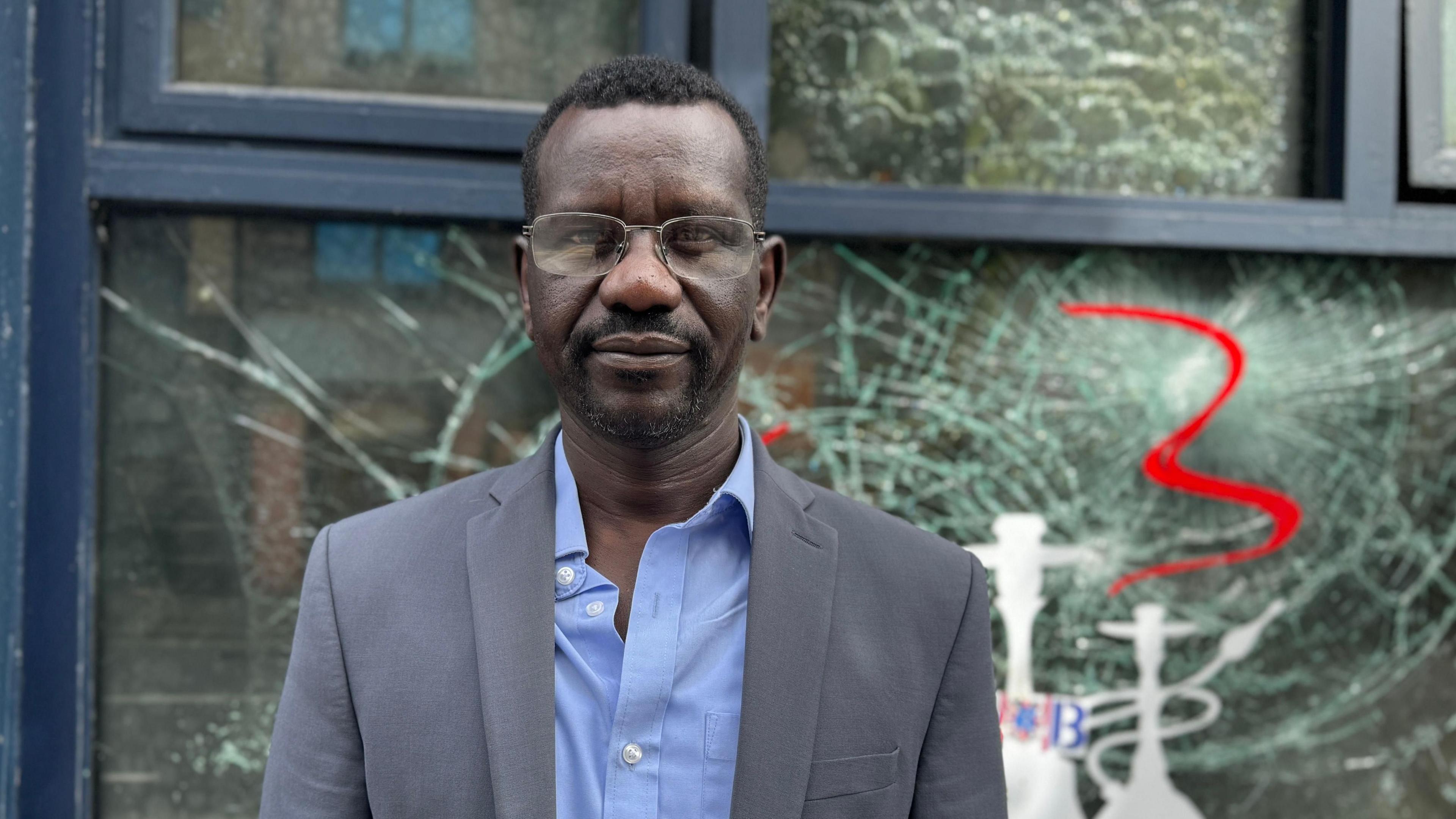Rioters are destroying own communities, DFM says
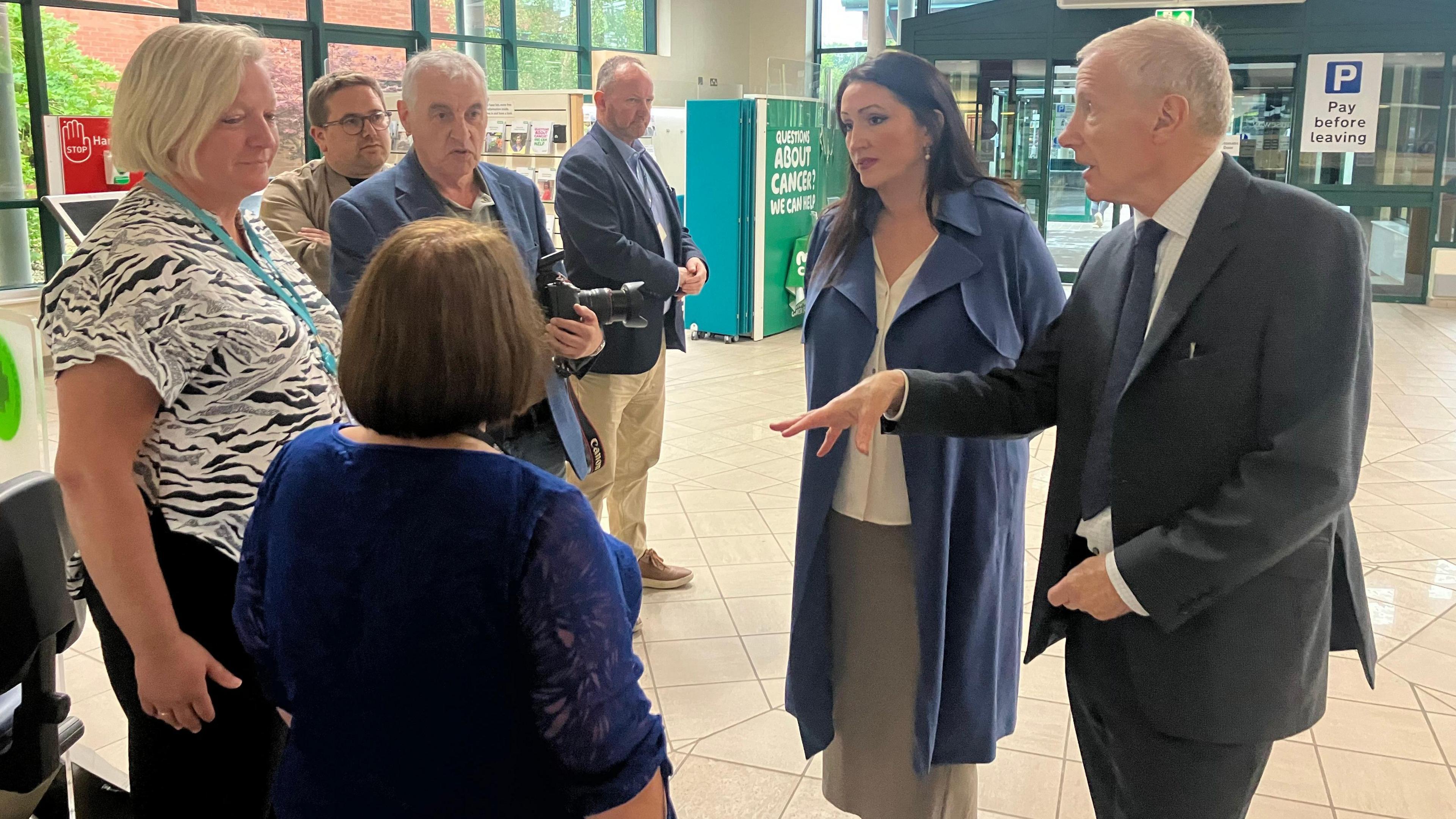
Emma Little-Pengelly and Gregory Campbell met Northern Trust staff on Wednesday
- Published
People involved in recent disorder in Northern Ireland are "causing destruction to their own communities" the deputy first minister has said.
The Democratic Unionist Party (DUP)'s Emma Little-Pengelly told reporters at Causeway Hospital nothing was achieved by violence.
She said she wanted to send a "very very strong message against racism".
She was joined by DUP MP Gregory Campbell as they met with Northern Trust staff to acknowledge the role of overseas health workers in Northern Ireland.
Ms Little-Pengelly said people had “very genuinely held” concerns about issues including “public services and access to housing”.
She added: "Those are issues we need to address through government, through democratic means.”
The Executive Office later said Mrs Little-Pengelly and First Minister Michelle O'Neill had spoken to businesses affected by the violence.
"They expressed their dismay and disappointment at the attacks, offered support to all those impacted and reiterated their strong determination to challenge racism and violence wherever it occurs," the statement said.
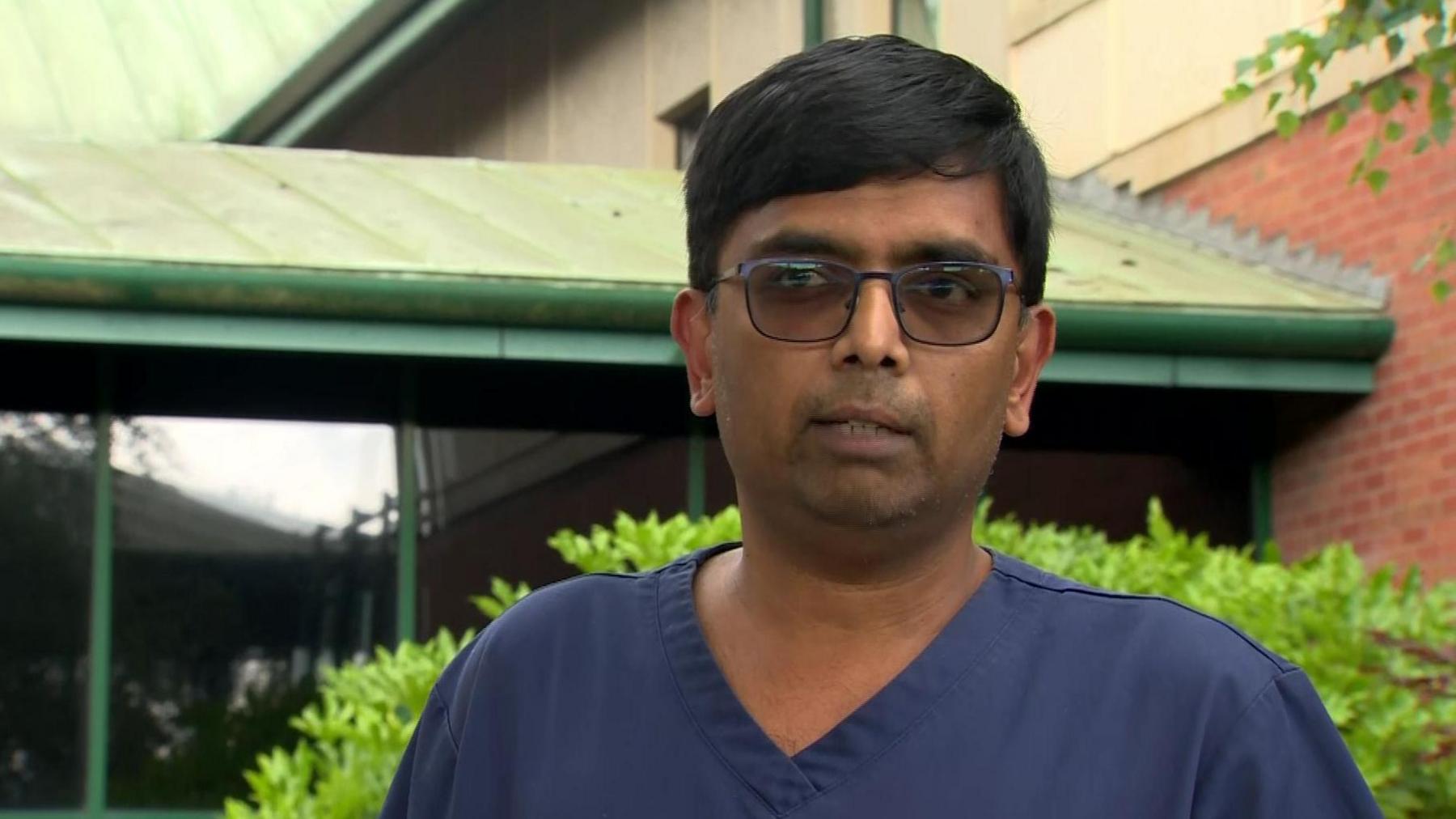
Dr Ramoorthy Nambi said the violence had been "shocking"
Also speaking at Causeway Hospital, Dr Ramoorthy Nambi who works in the stroke unit, said Northern Ireland had "always been quite welcoming", to those coming from overseas.
He said the scenes over recent days had been shocking.
"It makes you feel worried and fearful for even going about your daily lives," Dr Nambi said.
He said that while he had always experienced some racism from patients, said it had "definitely gotten worse in the past year".
Dr Nambi said the violence was "purely racist abuse" that was dressed up in an "anti-immigration cloak".
Politicians have 'responsibility to call out racist violence'
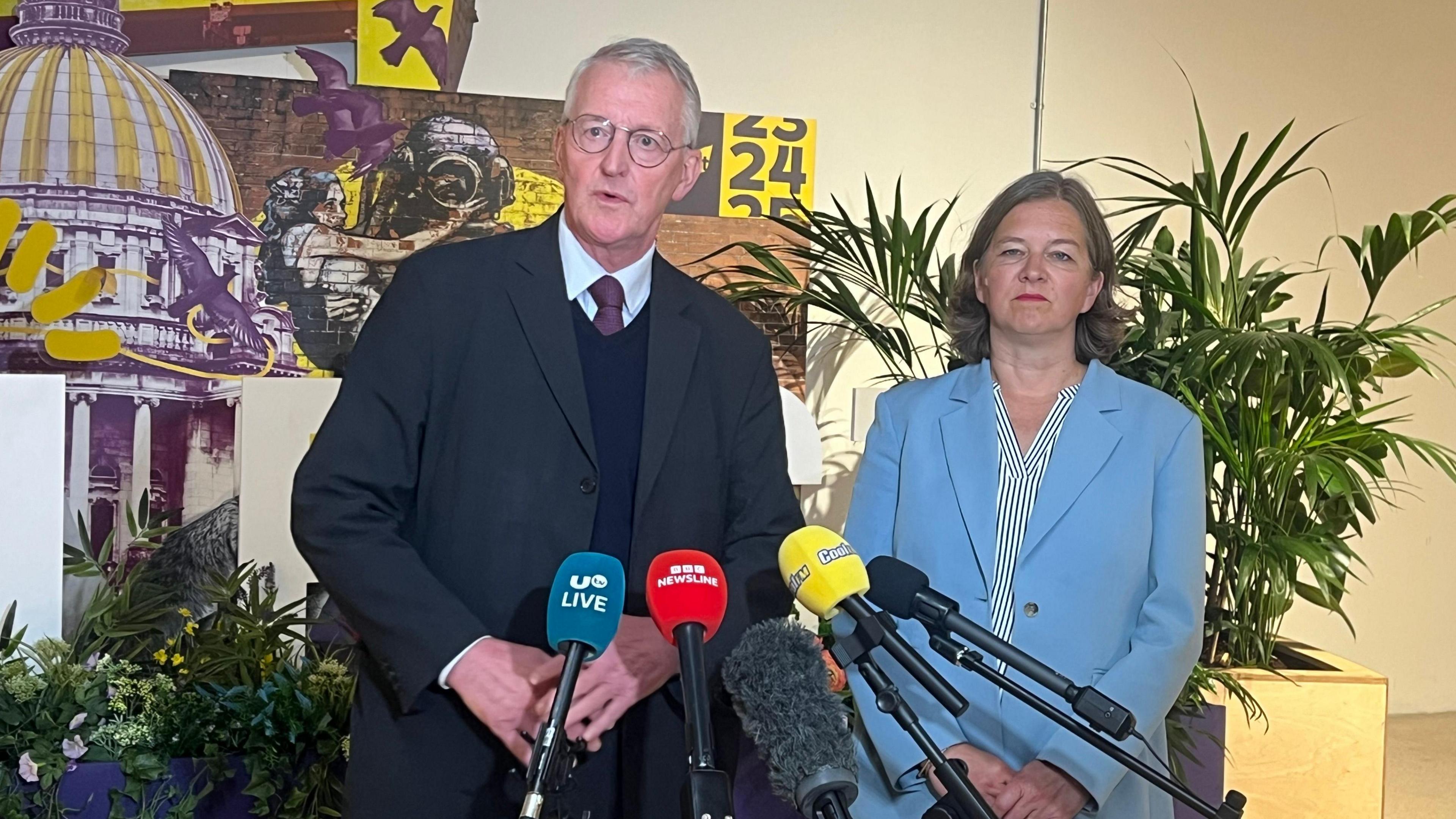
Hilary Benn visited Northern Ireland with one of his junior ministers
Northern Ireland Secretary Hilary Benn said all politicians in Northern Ireland had a responsibility to call out recent disorder as “racist violence”.
He was speaking on a visit to a community centre in Belfast to see how the government could assist following recent disorder prompted by anti-immigration protests.
He also met political representatives, the police, affected business owners, and the Belfast Islamic Centre.
Mr Benn said he became increasingly angry when listening to the experiences of businesses whose premises had been attacked.
But he would not be drawn on whether the government would provide additional financial resources to assist the Police Service of Northern Ireland (PSNI).
He said he was well “aware of the police numbers” in Northern Ireland, but stressed that those decisions rested with the executive.
“Whoever is in government with the budget you've got, you've got to decide what your priorities are," he said.
"And I have no doubt that the chief constable is making his case as I'm sure the justice minister is doing as well.
"But that is a decision for the executive to determine.”
'No justification whatsoever'
“I hope very much that when the assembly reconvenes tomorrow, we will see all of the political parties in Northern Ireland united in their condemnation of what has been going on," Mr Benn said.
He added that all elected representatives had "a responsibility to call out this racist violence for what it is, because it's targeted at a particular section of our community".
He said people were entitled to protest and to express their political views, but there was no justification for violence.
Analysis: Police do not suspect paramilitary co-ordination
The PSNI is understood to mobilising more officers due to concerns over further racially-motivated attacks in coming days.
Officer shift patterns are being adjusted and rest days cancelled.
It will result in an increase of officers on the streets, which should be visible.
Chief Constable Jon Boutcher will update the Stormont executive on Thursday morning.
The police do not believe loyalist paramilitary organisations are orchestrating or co-ordinating things.
However, known loyalist paramilitary figures have been engaged in some of the protests.
Police and loyalist sources have spoken of weeks and months of simmering tensions which are boiling over.
They point to housing protests fuelled by anti-immigration sentiment, such as in Belvoir estate in November.
Police data has also shown a year-on-year rise in racially-motivated incidents.
But the trigger has been the Southport stabbings and associated protests and trouble in England.
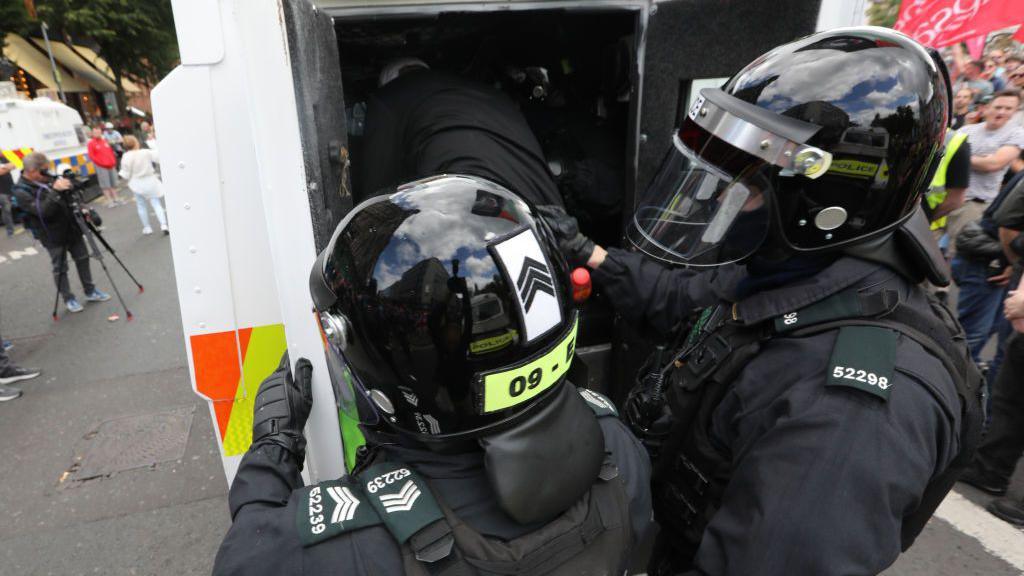
Riot police have been deployed in recent days
'Pursued robustly'
The head of the Public Prosecution service said anyone involved in recent street violence would be pursued "robustly" through the courts.
The office of the most senior judge in Northern Ireland, Lady Chief Justice Dame Siobhan Keegan, said judges stood ready to deal with any prosecutions.
On Wednesday, a health care worker's home in Ballyclare was attacked in what police have described as a racially motivated hate crime.
The front window of a house in Erskine Park was smashed and a brick thrown through the windscreen of a car parked outside in the early hours of Wednesday.
Police said they were also aware of racist graffiti being sprayed on a wall in the area.
Earlier in the week, a nurse in Belfast told BBC News NI that she will leave Northern Ireland when her contract is finished because of recent disorder.
BBC News NI understands that in the Belfast Trust there are about 10 nurses from overseas who have said they are leaving Northern Ireland.
Last month, eight African families were forced to leave the Ballycraigy estate after their homes were marked out with spray paint and racist material was taped to their windows.
Several families also had their car windows smashed.
Four of the eight families who had to leave their homes were employed as nurses in the Northern Trust.
Meanwhile in Londonderry, an anti-racism rally , externalwas organised in Guildhall Square to show solidarity with those targeted in recent attacks.
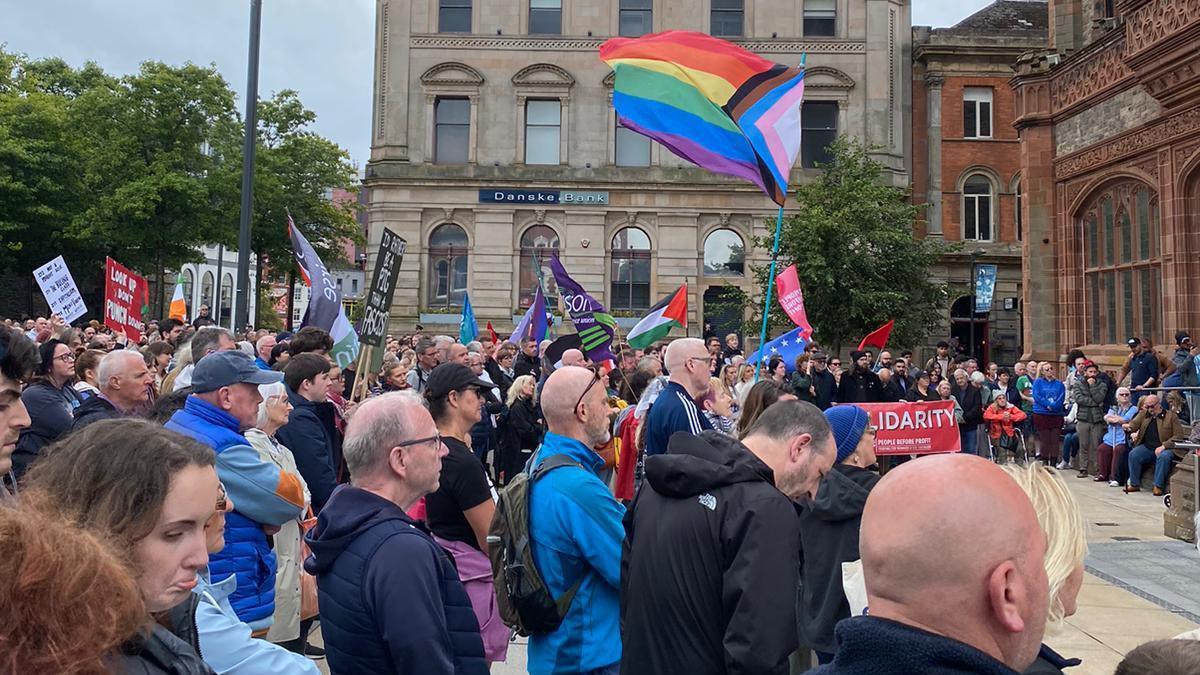
Politicians, unions and members of the public attende an anti-racism rally in Derry on Wednesday
What has been happening in recent days?
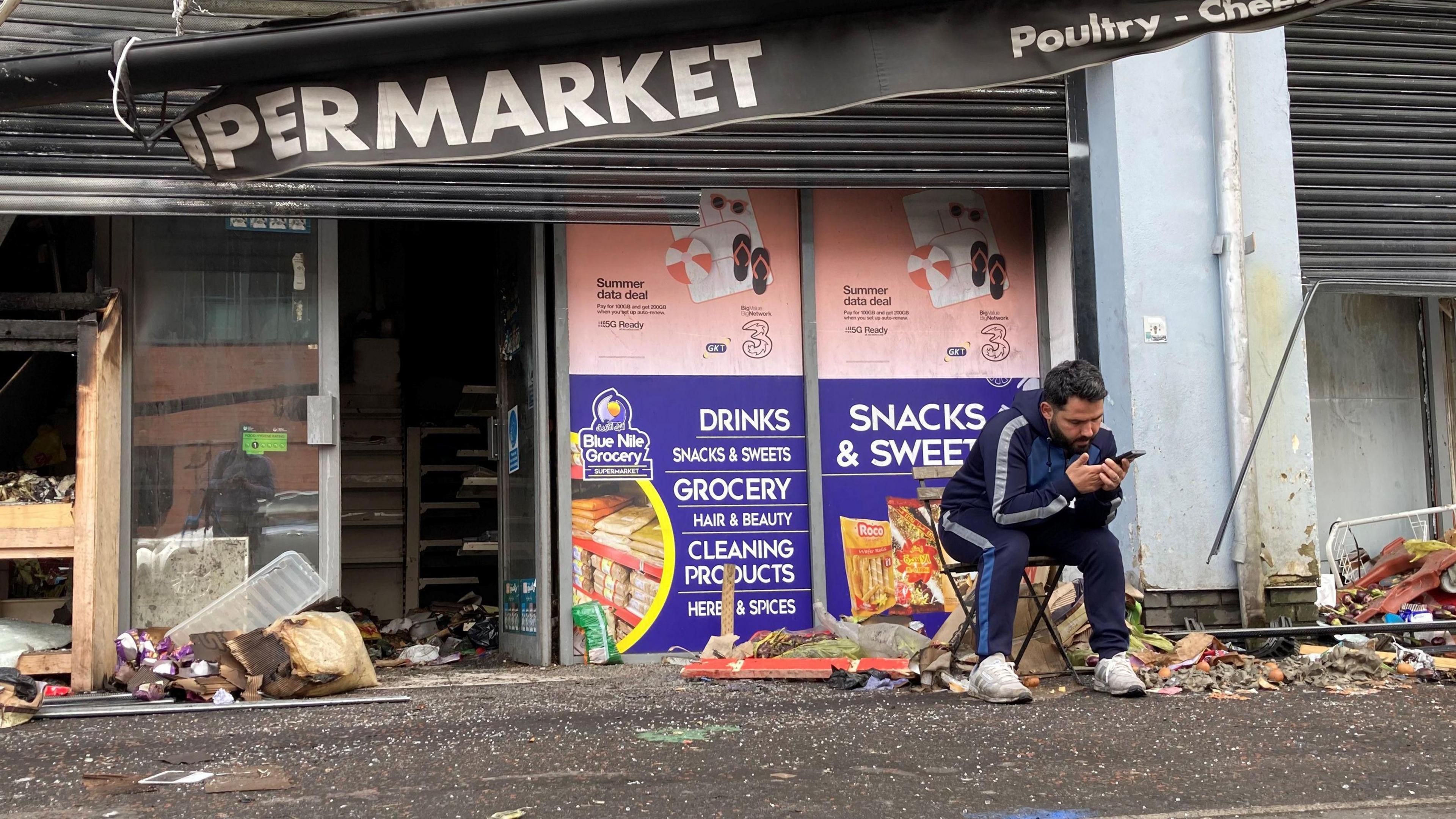
Several businesses have been damaged during the disorder
There has been widespread disorder across the UK - which erupted after the fatal stabbing of three girls in Southport - with unrest fuelled by misinformation online.
A number of businesses were targeted after an anti-immigration protest at Belfast City Hall on Saturday.
Further disorder erupted on Monday and Tuesday evening.
On Tuesday, a car was driven into an estate agent in north Belfast and a boy was injured during disorder outside a supermarket in the west of the city.
Other incidents, including criminal damage, were reported in County Antrim.
The PSNI is treating the incidents as racially motivated hate crimes and they have made a number of arrests since the weekend.
"The scenes we have been seeing across Belfast over the last few days have been a disgrace and have no place in Northern Ireland," said Assistant Chief Constable Melanie Jones.
The PSNI has set up a Major Incident Public Portal, external for people to submit information, images and footage which they have gathered by mobile phone, dash cam or CCTV.
Related topics
- Published5 August 2024
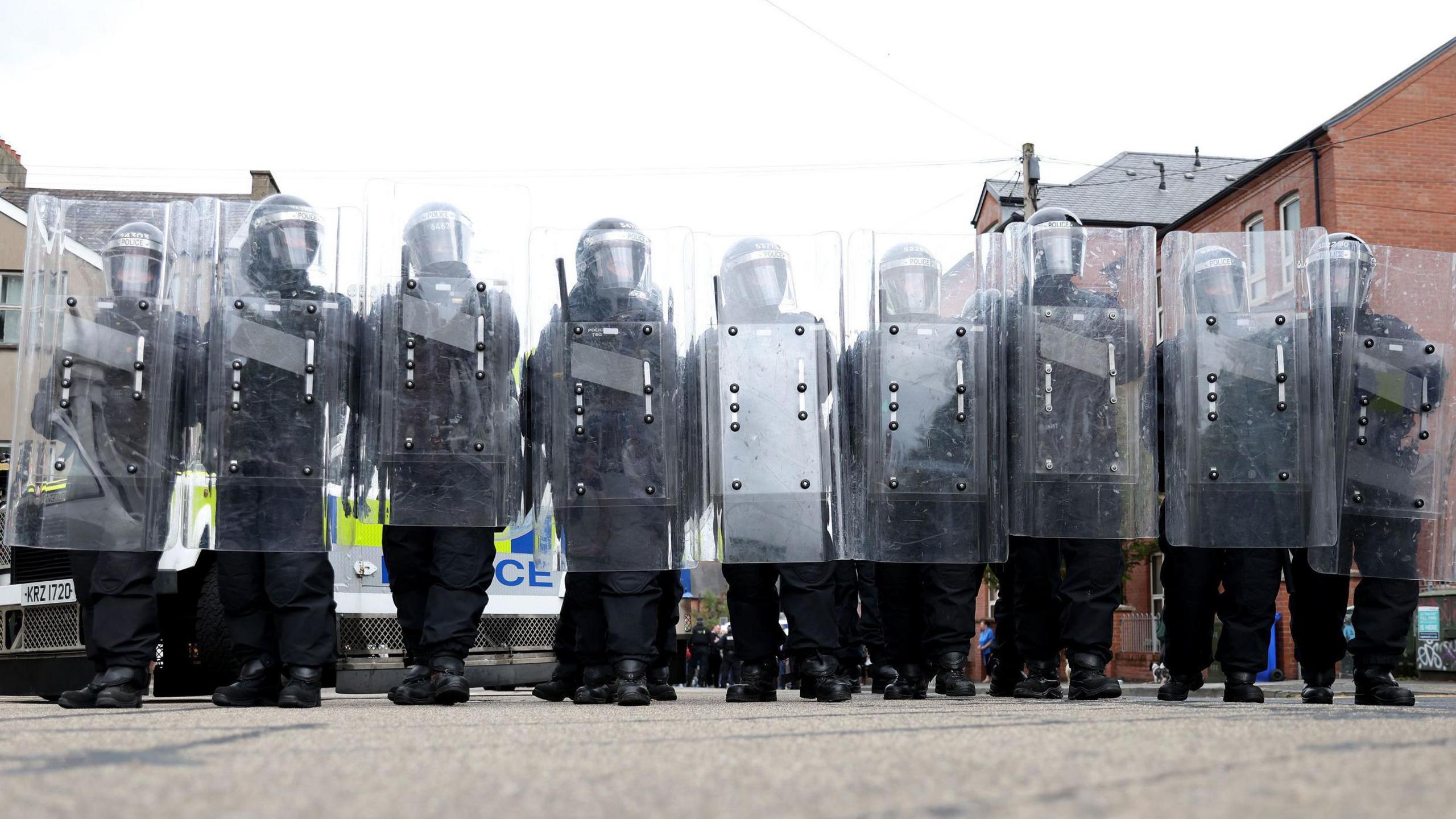
- Published7 August 2024
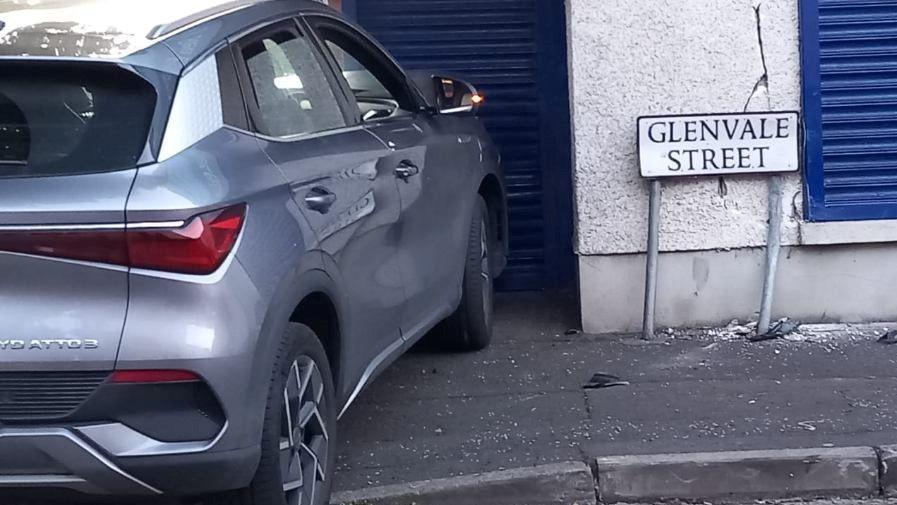
- Published5 August 2024
